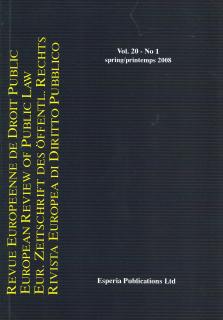
European Security: Bulgaria
Rumen Stefanov
Professor at the New Bulgarian University, Department of Political Sciences
On January 1st Bulgaria became an EU member. Even before that, the State and the public institutions were involved in joint initiatives carried out by both Community bodies and organs of different Member States. This preliminary cooperation substantially facilitated the process of the country’s adaptation. Especially in the field of Justice and Home Affairs, the legislation was considerably modified in order to meet the acquis communautaire and to create the grounds for its further participation. The Bulgarian institutions’ diligence was crowned with the State’s full Europol membership starting from July 23, 2007. But the issue of the country’s integration to the Schengen area is still pending, although a lot has been done to strengthen the control on the borders with the non-EU neighbor states. After the set back in the EU development, marked with the French and Dutch referendum rejection of the Constitution, a new impetus has been given with the recent EU Lisbon Treaty. Although the integration in the field of security, justice and home affairs is delayed, as approach as well as policy, Member States are willing to devolve competences to EU institutions, taking example from the achievements reached in areas like economic integration, freedom of movement, emigration, Community law, administrative regulations and so on. As a matter of fact, the EU is not a fossil, but a process of constant development.





















